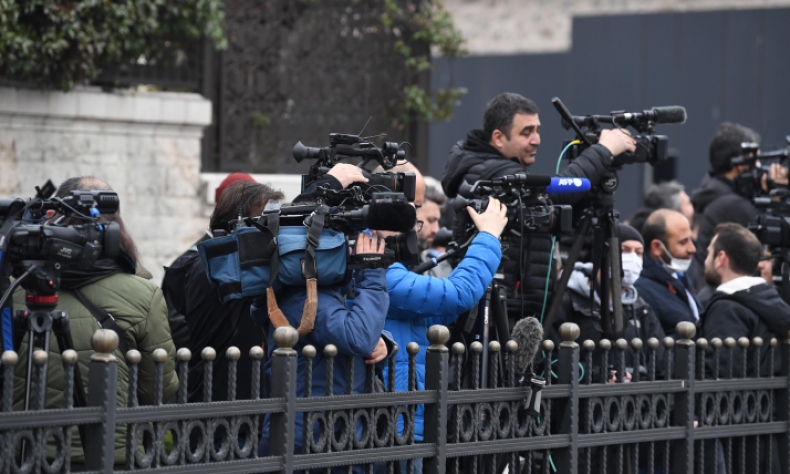Bitter Fruits

The trend of selective news avoidance and the rising distrust in the news are the bitter fruits the Western media must now harvest from the seeds it has long been sowing.
COVID-19, the Russia-Ukraine conflict, economic recession and other global challenges have continued unabated this year. However, these big events are failing to arouse the interest of news audiences, with those in many countries beginning to demonstrate increased levels of selective news avoidance.
The phenomenon was revealed in the 2022 Digital News Report, published in June by the Reuters Institute for the Study of Journalism at the University of Oxford. The study, which began in February, surveyed more than 90,000 people in 46 countries and regions online.
According to the report, the trend of selective news avoidance has been increasing in several nations, including Brazil, Spain and Britain. While in the United States, 67 percent of the sample indicated they were very or extremely engaged in news in 2015; however, that figure in 2022 is 47 percent.
Also revealed by the report, news trust in the U.S. has fallen by a further 3 percentage points from last year and was the lowest among all nations surveyed, at 26 percent. Another notable finding was that trust in BBC News has fallen 20 percentage points in the last five years, from 75 percent to 55 percent.
So, why is the Western media seemingly losing its oft-proclaimed mandate to represent the people and lead social progress, and how has it lost its ability to respond to the suffering of the underclass?

This trend is not a product of the events of the last two years. Since 2016, public political events in the West have revolved around the right-wing populist movement and the “post-truth era,” the most notable of these events being Trump’s presidential win and Brexit. The rebuke of the “ignorant masses” by the intellectual elite in journalism and the rejection of the “lying media” by the less educated working classes were early signs of the dramatic tearing that has occurred in societies of the West.
In its coverage of international events, the Western media has lost public trust through its regular employment of double standards and bias.
On February 25, one senior foreign correspondent of U.S. news platform CBS News stated on air that Ukraine “isn’t a place, with all due respect, like Iraq or Afghanistan, that has seen conflict raging for decades. This is a relatively civilized, relatively European—I have to choose those words carefully, too—city, one where you wouldn’t expect that, or hope that it’s going to happen.”
This was far from an isolated case, with media outlets throughout the Western world using Ukrainians’ identity as Europeans or even as Caucasians as a reason audiences should care more. Prior to this, in October 2019, the BBC tarnished its own name in East Asia by refusing to apologize for misidentifying 39 deceased Vietnamese victims of human trafficking in Britain as Chinese nationals.
The concept that all men are created equal is one of the values most central to the American nation and, along with the concepts of liberty, equality and fraternity, is held up as a guiding principle throughout the Western world. Why then does its media, the purported champions of these principles, grade suffering by skin color, grade concerns by geography, and grade the guiding role of news by interest?
Some Western media outlets, especially U.S. organizations, have always regarded news as an important tool for exporting ideology. The lack of objectivity when reporting on a perceived rival state and the relentless pursuit of the “when it bleeds, it leads” doctrine have turned away their target readers.
The trend of selective news avoidance and the rising distrust in the news are the bitter fruits the Western media must now harvest from the seeds it has long been sowing.
 Facebook
Facebook
 Twitter
Twitter
 Linkedin
Linkedin
 Google +
Google +










